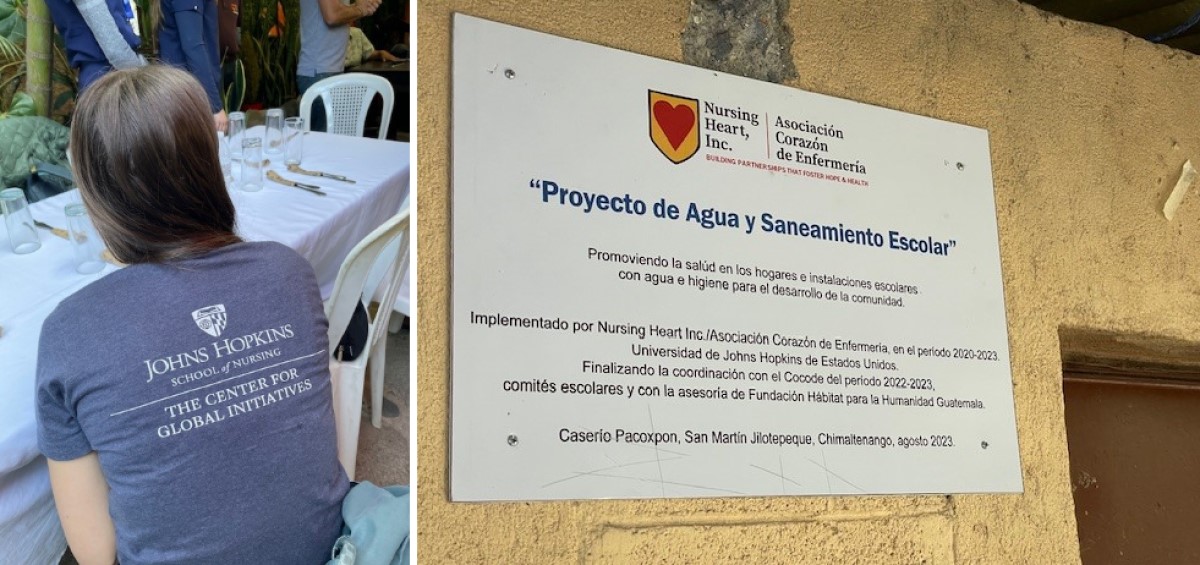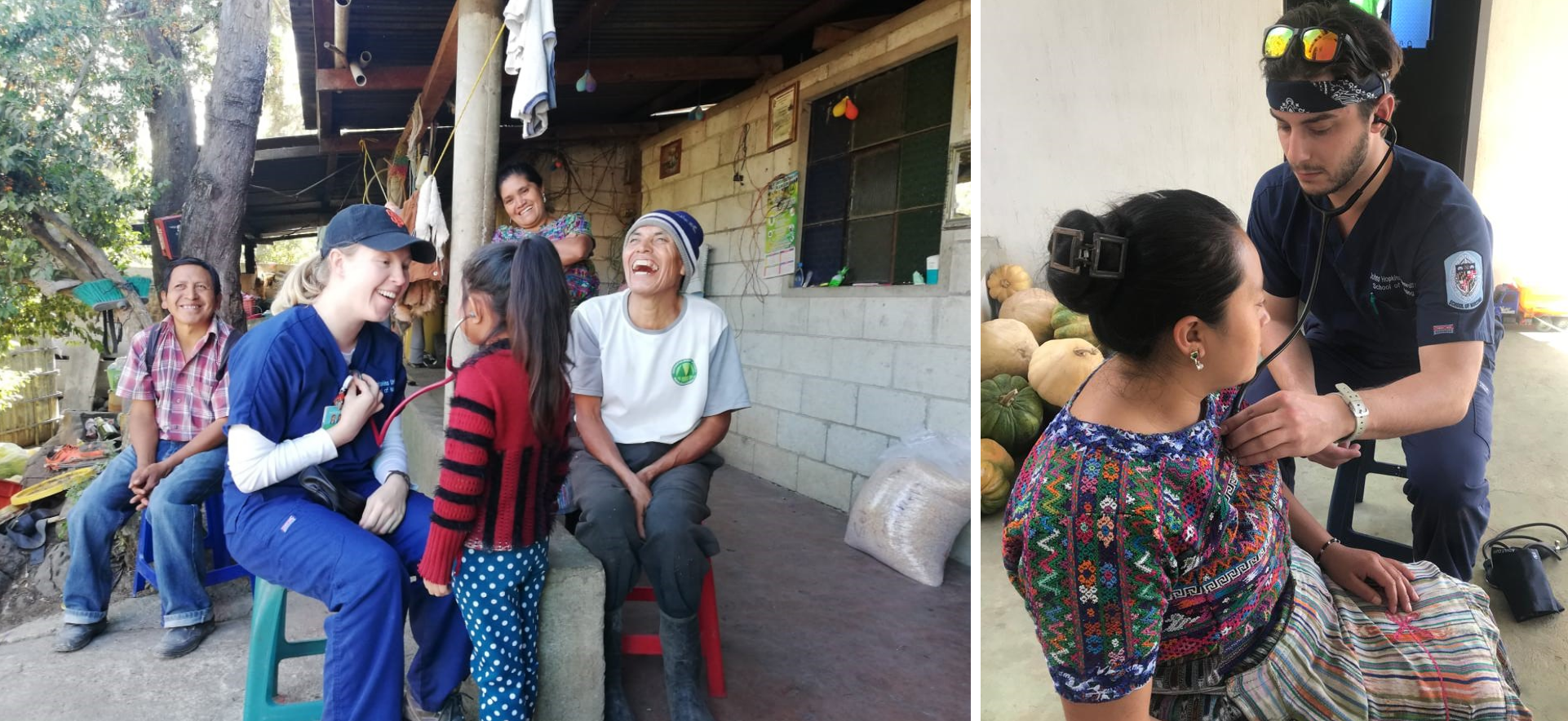Global health journeys are back, in the form of recent visits by Johns Hopkins School of Nursing students to Guatemala and—in a first for JHSON students—Nepal. The “how” is leadership by the Center for Global Initiatives (CGI) and a renewed openness and eagerness to travel after years lost to COVID restrictions. The “why” is clear:
Visits by student caregivers to places like Guatemala (and previously, Haiti and elsewhere) have made a large and lasting difference.
Take the WASH project—for water, sanitation, and hygiene—in the Guatemalan village of Pacoxpon. In 2020, a team of nursing students and faculty from Johns Hopkins conducted a Community Needs Assessment involving 284 people in 63 households—and identified a lack of access to clean water in the majority of those homes.
Residents regularly carried water from mountain wells or from the public basin area an hour away, purchased it from a middle man at varying rates, or relied on the whims of inconsistent municipal infrastructure, with water service limited to one hour per day
After several COVID-related work interruptions, today 43 families who lacked running water in their homes (55 percent of the community) have an operational tinaco, a 2,500-liter rainwater catchment tank to serve each family’s cooking, dishwashing, and personal hygiene needs during Guatemala’s November-May dry season. Clean water means less malnourishment, a product of both food insecurity and water-borne illness.

Photos courtesy of Nursing Heart, Inc./Asociación Corazón de Enfermería (NHI/ACE)
Meanwhile, the Guatemala-based NGO Nursing Heart, Inc./Asociación Corazón de Enfermería (NHI/ACE) has worked with Pacoxpon leaders on buy-in to renovate municipal infrastructure and reform community water handling. It’s a process that continues, reports Andrew Raphael, executive director of NHI/ACE, which welcomes and works alongside visiting teams from JHSON. As part of the effort:
The community recently installed a new water well to deliver water to 145 families and increase the flow of water to community facilities like schools, health center, and meeting hall.
Improvements at the elementary and kinder schools have improved access to proper sanitary and hygiene facilities, meaning less childhood illness and malnutrition.
Water counter gauges for each household, school, and meeting hall will allow the most efficient and effective use of water in the community, alert water authorities to leaks, and generate income for the Water Committee and Village Council to reinvest in infrastructure. “JHU’s presence was palpable, in the words of gratitude from the community leaders, in our retelling of the sequence of events, and of course in the beautiful plaques that now adorn the remodeled school facilities that we invested in to improve water access and sanitation there.”
Yet while the water project has been a great success, needs remain.
“Pacoxpon is quite impoverished and far from basic health infrastructure, although very proud, hard-working, and admirable,” says Raphael.
The Guatemala effort is a community-based, experiential learning opportunity that encompasses activities including but not limited to health screenings, community health assessments, diabetic foot clinics, and WASH educational initiatives.

About 15 JHSON students made the most recent trip to Guatemala; four others went to the Koirala Institute of Health Sciences in Ghopa, Dharan, Nepal. There, students worked and learned in a multidisciplinary and interprofessional environment that incorporates expertise from physicians, non-physician providers, nurses, and public health experts at an international site.
These are opportunities for students to make an impact on an entire community, one hands-on interaction at a time, while they grow as health care providers. — Steve St. Angelo
Support CGI’s service-leaning efforts, and watch for student blogs and images from these trips and others.
